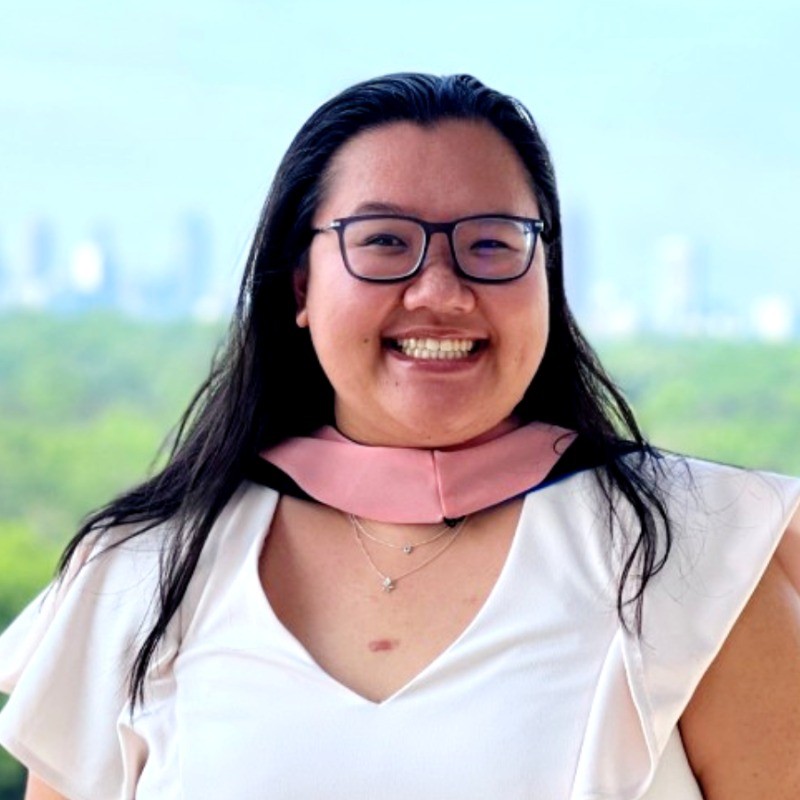Recognizing Future Public Health Leaders: Sabrina Chow, MPH, Discusses the Passion Driving her Career in Public Health

On the Monday before Thanksgiving, Research!America and leading public health organizations take the time to say “thank you” to our public health workforce who work tirelessly every day to protect us from disease, injury, and other health threats. This year’s theme, “Why Public Health?” calls attention to the ways public health professionals work to promote and protect health and shines a light on their dedication to serving communities across the country. This year, we’re highlighting MPH students and recent MPH graduates in this new blog series.
Sabrina Chow, MPH, received her Master of Public Health in environmental health and epidemiology in 2023 from the Rollins School of Public Health at Emory University. She is currently pursuing her PhD in environmental health sciences at the Laney Graduate School at Emory University. Sabrina’s research focuses on using exposure science and epidemiology to better understand the impact of environmental and social disparities, particularly among underserved populations and folks with disabilities. Here are some of Sabrina’s insights:
Why did you choose to study public health?
“I’ve always known that I wanted to help people, but during undergrad, I started to consider different avenues on how I would be able to pursue this. I ultimately chose to study public health because it allowed me to combine my passions of sustainability and the environment with human health in a research setting that would have broader impacts. Having been in the field for a number of years, I have loved working and meeting with colleagues from across the world.”
What do you think are the most pressing issues in public health today?
“There are two issues that I think are the most pressing in public health today. As an environmental health researcher, I am extremely biased to say that environmental health is one of the most pressing issues. While so much research focuses on the health effects of environmental exposures, we are still not clear on the long-term, generational, and biological effects that these have on humans. And as the climate continues to change, there should be a greater urgency in furthering our understanding of these health effects to help development policies that can reduce exposure and negative health outcomes. More broadly, though, I also think the spread of misinformation is a huge issue in public health. Take the COVID-19 pandemic, for example, there was so much information being shared that it was hard for people to distinguish between what is fact and what is fiction. With this spread of misinformation, the general population did not know what was true and what wasn’t, which could have caused an undue burden of disease and increased cases of preventable deaths.”
Upon graduating, what do you plan to do with your degree?
“After graduating with my MPH, I went straight into a PhD program in Environmental Health Sciences. After completing my PhD, I am hoping to teach and do research in an academic setting.”
Could you share any advice for anyone who wants to pursue a degree in public health? What have been some of the challenges you have experienced?
“My biggest piece of advice is to never stop exploring. The field of public health itself is large and small all at the same time – while there are a lot of public health professionals, once you find your niche, the field gets a lot smaller, and you oftentimes find yourself collaborating and working with the same colleagues on projects. When I was still exploring and starting out, I was reading a lot of scientific papers while learning methods, and I am now working with the people that wrote these landmark studies that have advanced the field to where they are now, which has been an amazing experience. One challenge that I continue to experience is trying to narrow down my research interests and find my niche. But what I love about public health is that you are not siloed into a specific research area. You can work within your own specialty, but still collaborate with others that have tangential interests, which has really given me the opportunity to broaden my own scope and passions.”
How can we inspire a younger generation to be interested in pursuing a career in public health?
“I think the best way that we can inspire the younger generation to be in public health is to expose them more to public health – what it is, what it has to offer. Had I known what public health was when I was in high school or early in college, I think my trajectory would have been a lot more straightforward. Not that finding time to explore is a bad thing, but it is such a necessary career field that should be talked about a lot more for the younger generation to show different ways that they are able to make a meaningful impact on society. Additionally, show them the application of public health in more common career fields and how you can integrate them together.”




